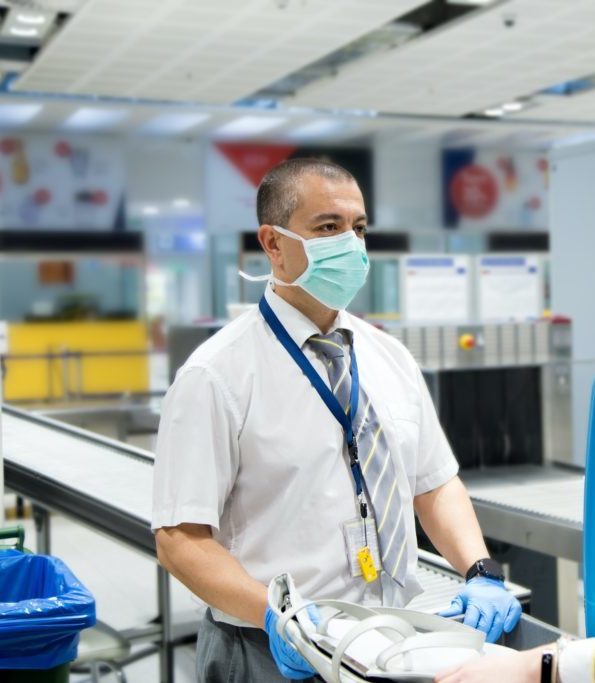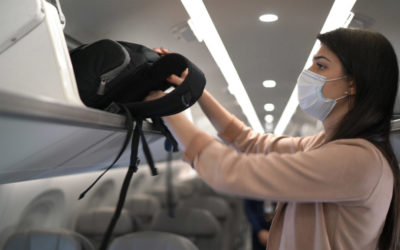PENT-UP DEMAND FOR SMALL MEETINGS IS HEATING UP
hotels introduce enhanced technology and flexible contacts
It just may be the small-meetings business that could help the beleaguered hotel industry overcome challenges presented by a raging pandemic, economic downturn and, in the United States at least, even civil unrest.
Danny King of Hotel News Now shares his perspective from the other side of the pond on what hotel chains are doing there to encourage business events back and how the UK is quickly following suit.
Companies anxious to cement deals and keep their employees connected realise they need to have meetings, with hotels providing the perfect venue to do this safely in small groups. To entice these groups, hotels are providing enhanced technology, flexible contracts that allow for last-minute changes and detailed sanitary procedures.
“Hotels must have all social distancing guidelines in place for meeting space and (food and beverage). In addition, they need to offer more flexible cancellation and attrition clauses around force majeure, or if fewer attendees become a reality,” said Steve Goodman, founder and managing partner at MeetingAdvice in Atlanta.
Some hotels are offering meeting space just for online meetings and most in-person meetings going forward will have a hybrid component, he said. As a result, hotels are making accommodations to allow this, such as higher bandwidth options.
Hotels can also charge extra for the additional audio-visual services to accommodate the online or hybrid meetings, which is another potential revenue source. In addition, even larger meetings and incentive bookings are on the books for 2022, Goodman said, which will also mean greater revenues.
However, even though bookings are picking up, many meetings being booked now are focused on drive-to markets. This is the case until consumer confidence with longer-haul flight travel rises, said Teresa Savage, vice president of business development at the Monterey County Convention & Visitors Bureau in California.
A significant portion of these gatherings are meetings with boards of directors and other corporate matters such as strategy, budget, sales and marketing, operations, staffing and company performance, said Tim Dick, senior director with CBRE Hotels Advisory.
The average meeting size generally averages about 18 to 20 people. Video conference capabilities at hotels are critical as is food and beverage. Additional meetings range from 12 to 14, Dick said. The booking cycle is short, generally within 45 days. Half of the booked meetings are rooms only and the other half include food and beverage.
“Hotels are experiencing constant and steady interest in meetings for both near term and the future,” he said.
There is also strong demand from consultants, corporate, local corporate, local government, state government, health care, medical suppliers, government overseeing vaccination, Veterans Affairs hospitals and pharmaceutical companies.
While it’s true that the threshold for justifying travel may increase—companies will need to focus on the ROI—business travel will still be essential for growing sales, building teams and maintaining culture.
A good CFO isn’t just thinking about the bottom line and cost savings but also how the talent experience and overall company growth comes into play. Getting people together is critical for rapidly building trust and relationships, rallying around a cause and re‐energizing and motivating the team—all of which are critical for innovation.
So, how can companies prepare for this shift in business travel? By establishing smart policies, compliance standards and iron‐clad record keeping.
Realising that meetings are where the business is, Hilton began rolling out globally its Hilton EventReady Hybrid Solutions. These offerings, which will continue to evolve, direct event planners to Hilton’s hybrid-ready hotels while also providing them with planning resources, according to a news release. Participating hotels will have access to team member training resources to build their knowledge in hybrid events.
https://www.youtube.com/watch?v=bXsETTu7TC8&ab_channel=Hilton
Andrea Sorensen, senior director of sales and marketing at Radisson Hotel Group, said the greatest demand is for room blocks for traveling sports teams. This is followed by corporate and government events. Hotels need to be more flexible with their small groups these days. Participating Radissons are waiving attrition and cancellation fees for meetings and events booked through June 30, if the hotel is notified four days prior to the event program, Sorensen said.
Other types of small meetings that are growing are sales demonstrations and new hire training, said Ashley Manley, director of sales at Fairfield Inn & Suites in the San Diego North-San Marcos region of California. Meetings with overnight stays are booking very last-minute, like a week in advance, she said. These meetings have 12 people or fewer.
“Individuals also have been booking day-use guest rooms for virtual meetings or to work from a hotel,” Manley said. “They need very little space and are largely self-sufficient but need to get out of their homes.”
The JW Marriott Scottsdale Camelback Inn Resort & Spa is seeing quite a few groups still interested in meetings, just on a much smaller scale with most having fewer than 25 people, said Jonathan Amato, director of sales and marketing.
“The hybrid meeting is also becoming more popular, as we have had groups interested in holding smaller numbers at the in-person event but streaming to a large audience,” Amato said.
The Salamander Resort & Spa in Middleburg, Virginia, is seeing group business of 10 and fewer, with many requesting audio-visual support for online conferencing, said Douglas Camp, director of sales and marketing. Even smaller groups of two to four people are booking suites, so they can socially distance from other guests. Midsize groups are interested in purchasing buyout packages of meeting space and rooms in 2021 to ensure exclusivity.
The Wild Dunes Resort in Isle of Palms, South Carolina, has been booking and hosting small groups of 50 or less since September, said Jeffery Payne, director of sales and marketing. Since Oct. 13, groups have booked for 90 days out or fewer, with the majority of those reservations made for a 45-day or less window. Food and beverage was involved for 10 of the 13 groups.
“The requests are minimal,” he said. “Safety questions dominate sales and planning conversations, but with detailed safety protocols shared early in the process these concerns are quickly satisfied in most cases.”
Payne said he sees even more of a growth in small group business, as vaccines and rapid testing help reduce pandemic safety concerns. In fact, there is general optimism all around about the future of group business both domestically and overseas.
“It must be said there is nothing wrong with small high-yielding, residential meetings, as part of a hotel’s strategy, even in non-pandemic times,” said Adrian Mooney, director of sales at Kilkea Castle, a luxury hotel resort and golf club in County Kildare, Ireland. “Quite often they can be the source of some of our most profitable business.”

Reports show that non-verbal communication can form as much as 93% of all communication. Communicating via virtual channels such a Zoom and Microsoft Teams can mean that many of those messages get lost. We must maintain face-to-face meetings to communicate effectively but appreciate that virtual meetings will continue to have a large role to play in the future.


Traveller Toolkit
To help you navigate the changes of business travel, we’ve created the brand-new Traveller Toolkit. This invaluable online resource is packed full of easy-to-use guides and checklists for every stage of every journey. We detail exactly what you need to know and do before, during and after your trip.
You’ll also find innovative and interactive virtual trips, which walk you through each step of being at the airport, on the train and in the hotel. You can even check the travel restrictions and health status of your destination with our comprehensive COVID-19 Country Tracker, updated five times daily to ensure you have the very latest information to help keep you and your travellers safe.
Travel is changing. But with common sense and a good TMC behind you, travellers should have the confidence to once again take to the skies. It’ll soon be business as (un)usual.
LATEST FROM THE BLOG
Explore our most recent articles, covering the latest topics from the best in the business…
New Year, New Mindset
This past year has been hard on everyone’s mental health and well-being, but maybe it’s now time to consider those two things more seriously from a business travel perspective. Kick start this new year with a new mindset.
Brexit Baggage
The UK’s decision to leave the European Union means travellers face bans on a wide range of goods. Many items are now prohibited from travellers’ baggage from Great Britain. Find out what you now can and can’t take in your luggage…
GHIC replaces EHIC
UK residents can now apply for a UK Global Health Insurance Card (GHIC), which replaced the EHIC. This is great news for those who want to travel in the EU but do not have cover for COVID treatment. Check out our FAQs…



